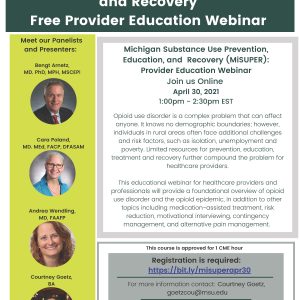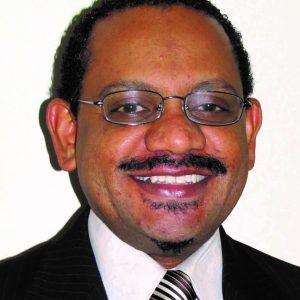Bengt Arnetz, MD, PhD, MPH, MScEpi, FACOEM is Professor in Family and Preventive Medicine. He received his medical degree from the Karolinska Institutet School of Medicine. Dr. Arnetz completed his residency in Occupational and Environmental Medicine (OEM) at the Harvard T.H. Chan School of Public Health in Boston, Massachusetts. He also completed OEM residency training at Karolinska University Hospital, Stockholm, Sweden. In addition to his US board certification, Dr. Arnetz is board certified in OEM and Community Medicine in Sweden. Dr. Arnetz completed a PhD in psychophysiology from the Karolinska Institutet School of Medicine, Stockholm, Sweden. He has received both a MPH and MScEpi from Harvard T.H. Chan School of Public Health. Dr. Arnetz is certified by the American Board of Independent Medical Examiners (CIME).
Dr. Arnetz commenced the Chair position at the College of Human Medicine, Michigan State University, in September 2015 till 2021. Prior to that, he had spent a decade in the Department of Family Medicine at Wayne State University School of Medicine as professor and Vice Chair of the Department and Deputy Director of Wayne’s National institute of Environmental Health-funded P30 Center for Urban Responses to Environmental Stressors.
Dr. Arnetz work focuses on transforming the delivery of primary care through close collaboration with leading healthcare systems, facilitating changes in the Department’s own family medicine practice, as well as leading numerous research projects focusing on the organization and delivery of healthcare as well as cutting-edge research on provider health and performance.
Dr. Arnetz collaborates with large healthcare systems in how to integrate remote sensoring and new administrative technological support systems into effective and patient as well as provider-centric healthcare systems. Dr. Arnetz is also leading research into community-based initiatives to enhance environmental equity with special reference to the effects of climate change on vulnerable and underserved communities.
Dr. Arnetz is committed to ensuring medical students as well as residents are well-positioned to be leaders in outpatient care of the future, not least by studying how to incorporate AI, deep learning and virtual delivery tools in person-centered primary care. Dr. Arnetz is also engaged in federally-funded research targeting substance use disorders, specifically opioid use disorder, as well as mechanism behind and effective means to counter stress-related disorders.
Dr. Arnetz leads a new initiative focusing on the prevalence, mechanisms, course, and prevention/attenuation of post-Covid-19 syndrome – also known as Long-Hauler. Between 35%-75% of patients having survived the SARS-CoV-2 virus infection are suffering from a broad array of symptoms as well as dysregulation of a range of physiological systems.
Publications:
Search PubMed at the National Library of Medicine












